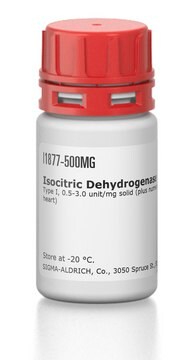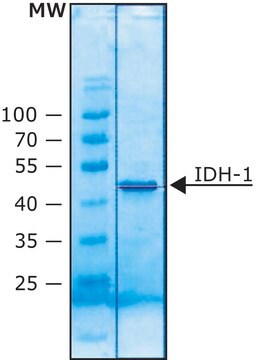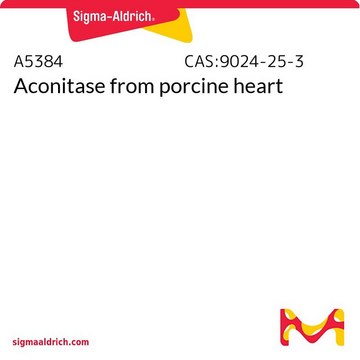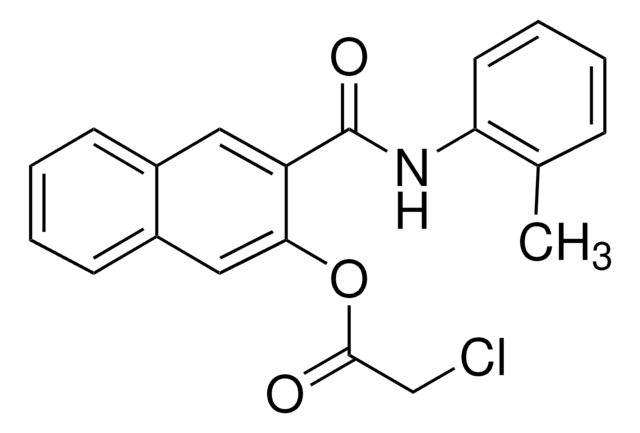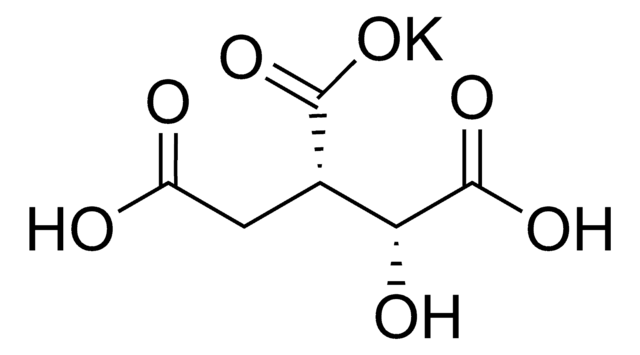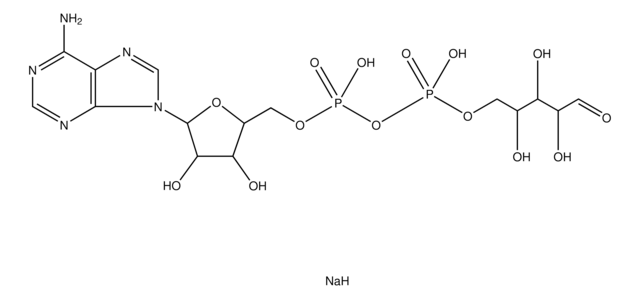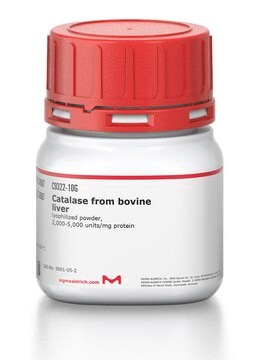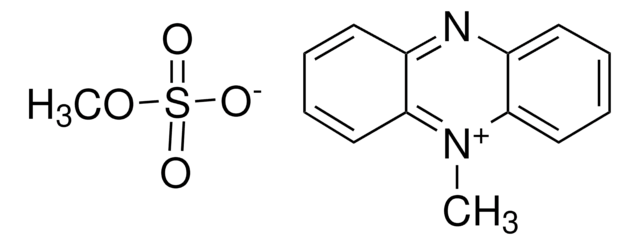I2002
Isocitric Dehydrogenase (NADP) from porcine heart
Type IV, buffered aqueous glycerol solution, 3-20 units/mg protein
Synonym(s):
threo-Ds-Isocitrate: NADP+ oxidoreductase, ICDH, IDH
Sign Into View Organizational & Contract Pricing
All Photos(2)
About This Item
Recommended Products
type
Type IV
Quality Level
form
buffered aqueous glycerol solution
quality
≤ 0.2% of main activity is obtained with NAD as cofactor.
specific activity
3-20 units/mg protein
composition
Protein biuret
shipped in
wet ice
storage temp.
2-8°C
Looking for similar products? Visit Product Comparison Guide
Application
Isocitric dehydrogenase (IDH) has been used:
- for in vitro activity assay to study the effects of thorium on citric acid cycle enzymes in the mitochondrial respiration pathway
- as a standard to measure the impact of temperature on nicotinamide diphosphate (NADP)-IDH activity
- in isocitrate assay
Biochem/physiol Actions
Isocitrate dehydrogenase (IDH) is a homodimeric enzyme and participates in several processes such as adapting to hypoxia, histone demethylation, and DNA modification. This enzyme has three isoforms like IDH1, IDH2, and IDH3.
Unit Definition
One unit will convert 1.0 μmole of isocitrate to α-ketoglutarate per min at pH 7.4 at 37 °C.
Physical form
Solution in 50% glycerol in EDTA buffer salts, pH 6.0
inhibitor
Product No.
Description
Pricing
Storage Class
10 - Combustible liquids
wgk_germany
WGK 2
ppe
Eyeshields, Gloves, multi-purpose combination respirator cartridge (US)
Choose from one of the most recent versions:
Already Own This Product?
Find documentation for the products that you have recently purchased in the Document Library.
Customers Also Viewed
Erdem M Terzi et al.
Science advances, 7(22) (2021-05-28)
Intracellular iron levels are strictly regulated to support homeostasis and avoid iron-mediated ROS production. Loss of iron-sulfur cluster (ISC) synthesis can increase iron loading and promote cell death by ferroptosis. Iron-responsive element-binding proteins IRP1 and IRP2 posttranscriptionally regulate iron homeostasis.
B C Medeiros et al.
Leukemia, 31(2), 272-281 (2016-10-11)
Alterations to genes involved in cellular metabolism and epigenetic regulation are implicated in the pathogenesis of myeloid malignancies. Recurring mutations in isocitrate dehydrogenase (IDH) genes are detected in approximately 20% of adult patients with acute myeloid leukemia (AML) and 5%
Avtar Singh et al.
The Journal of biological chemistry, 278(35), 33208-33216 (2003-06-07)
Transhydrogenase couples the reduction of NADP+ by NADH to inward proton translocation across mitochondrial and bacterial membranes. The coupling reactions occur within the protein by long distance conformational changes. In intact transhydrogenase and in complexes formed from the isolated, nucleotide-binding
M Ryan Smith et al.
Redox biology, 8, 136-148 (2016-01-18)
Many cancer cells follow an aberrant metabolic program to maintain energy for rapid cell proliferation. Metabolic reprogramming often involves the upregulation of glutaminolysis to generate reducing equivalents for the electron transport chain and amino acids for protein synthesis. Critical enzymes
Icksoo Lee et al.
Biochimica et biophysica acta, 1802(2), 275-283 (2009-10-20)
Noonan syndrome (NS) is an autosomal dominant disorder, and a main feature is congenital heart malformation. About 50% of cases are caused by gain-of-function mutations in the tyrosine phosphatase SHP2/PTPN11, a downstream regulator of ERK/MAPK. Recently it was reported that
Our team of scientists has experience in all areas of research including Life Science, Material Science, Chemical Synthesis, Chromatography, Analytical and many others.
Contact Technical Service